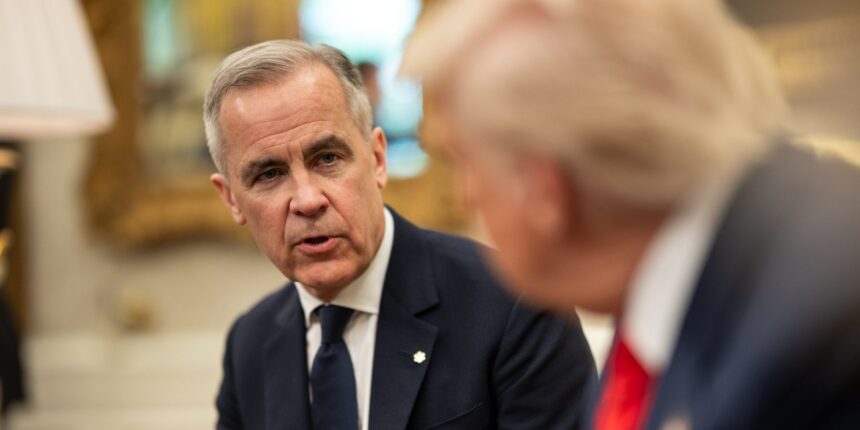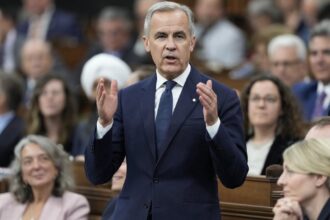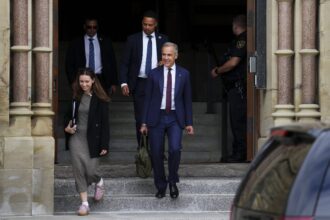In an unexpected twist of Canadian-American relations, former Bank of Canada governor Mark Carney and former U.S. President Donald Trump engaged in a heated exchange during yesterday’s economic forum in Calgary, setting the stage for what analysts are calling “the cross-border political confrontation of 2025.”
The tension erupted when Carney, who recently announced his intention to run for Parliament, criticized Trump’s economic policies during a panel discussion on North American energy cooperation. “The protectionist approach we’ve seen previously created market instability that hurt both Canadian and American workers,” Carney stated, referring to Trump’s first term tariff policies that disrupted Canadian exports.
Trump, appearing via video link, immediately shot back. “Mark doesn’t understand real economic growth. When I was president, America had the strongest economy in history, and Canada benefited from our success until they chose bad policies.”
Alberta Premier Danielle Smith, moderating the discussion, attempted to redirect the conversation toward provincial energy interests, but found herself caught between the two high-profile figures as they debated everything from carbon pricing to pipeline development.
“What we witnessed today represents the larger ideological battle happening across North America,” explains Dr. Sarah Richardson, political science professor at the University of Alberta. “Alberta has become the perfect microcosm of this struggle – resource-rich, economically significant, and increasingly divided on how to approach energy transition.”
The forum, attended by over 300 industry leaders and policymakers, highlighted Alberta’s crucial position in the evolving political landscape. With provincial unemployment at 6.7% and energy prices fluctuating, the province faces difficult choices that mirror larger continental debates about economic stability versus environmental concerns.
Carney later expanded on his position at a CO24 Politics exclusive interview: “We need pragmatic solutions that recognize both climate realities and economic necessities. The false choice between jobs and environment is damaging our ability to compete globally.”
This clash comes as both Canada and the United States prepare for significant electoral contests in 2025, with Alberta potentially serving as a proving ground for competing economic visions. Industry analysts suggest that investment decisions worth billions in the oil sector may hinge on the political direction that emerges from this ideological contest.
The confrontation has resonated beyond energy circles, drawing attention from financial markets as investors try to anticipate potential policy shifts. The Canadian dollar fluctuated noticeably following the exchange, demonstrating the real economic impacts of political positioning.
“When two figures of this stature clash, markets respond,” notes financial analyst Robert Torres. “The uncertainty creates volatility, which is precisely what stable economies try to avoid.”
As both Carney and Trump continue their respective political journeys, their collision in Alberta raises profound questions about the future of North American economic cooperation. Will resource-rich provinces like Alberta continue to be caught between competing international visions, or can they chart a course that balances economic interests with evolving global priorities?










